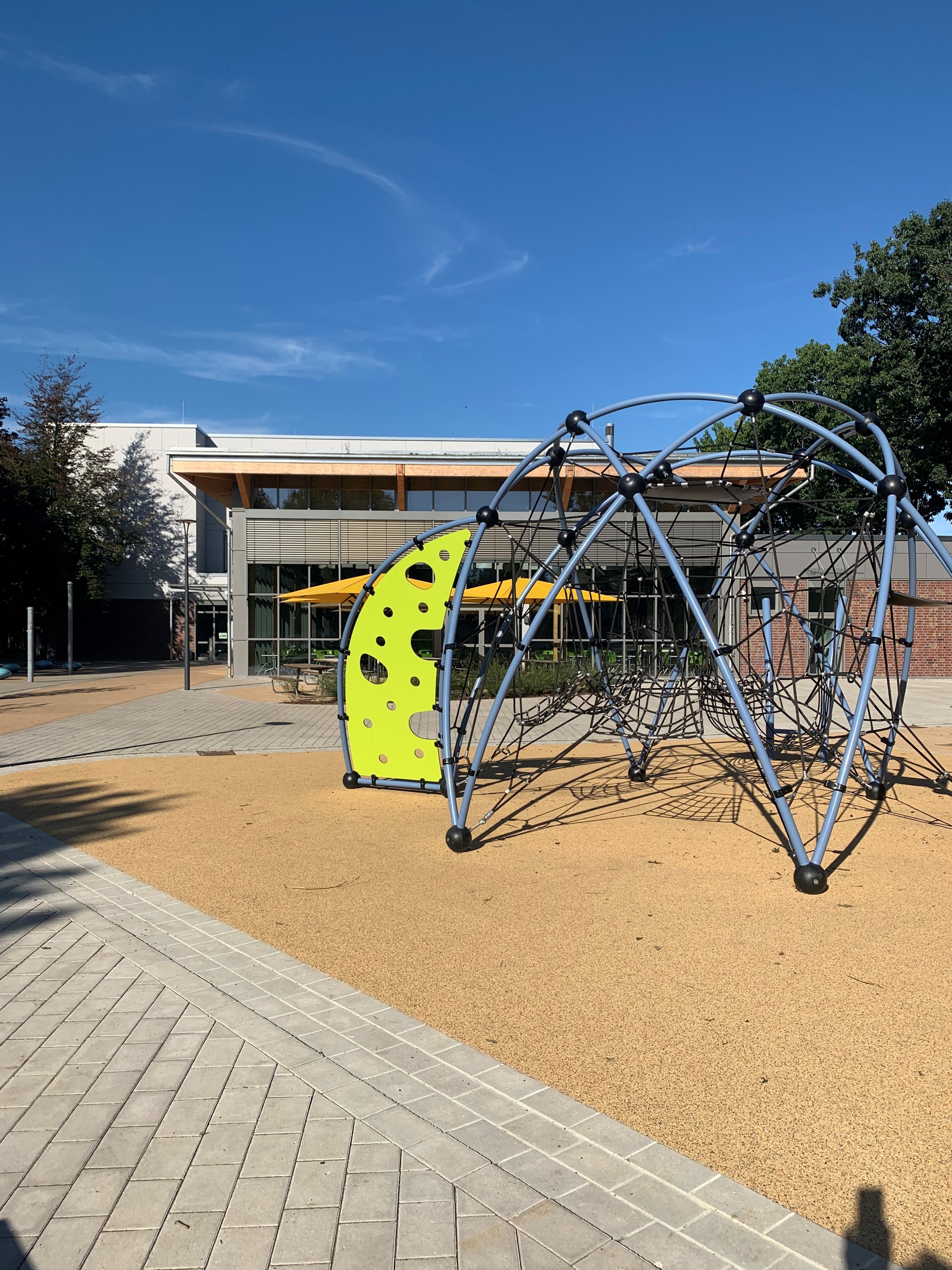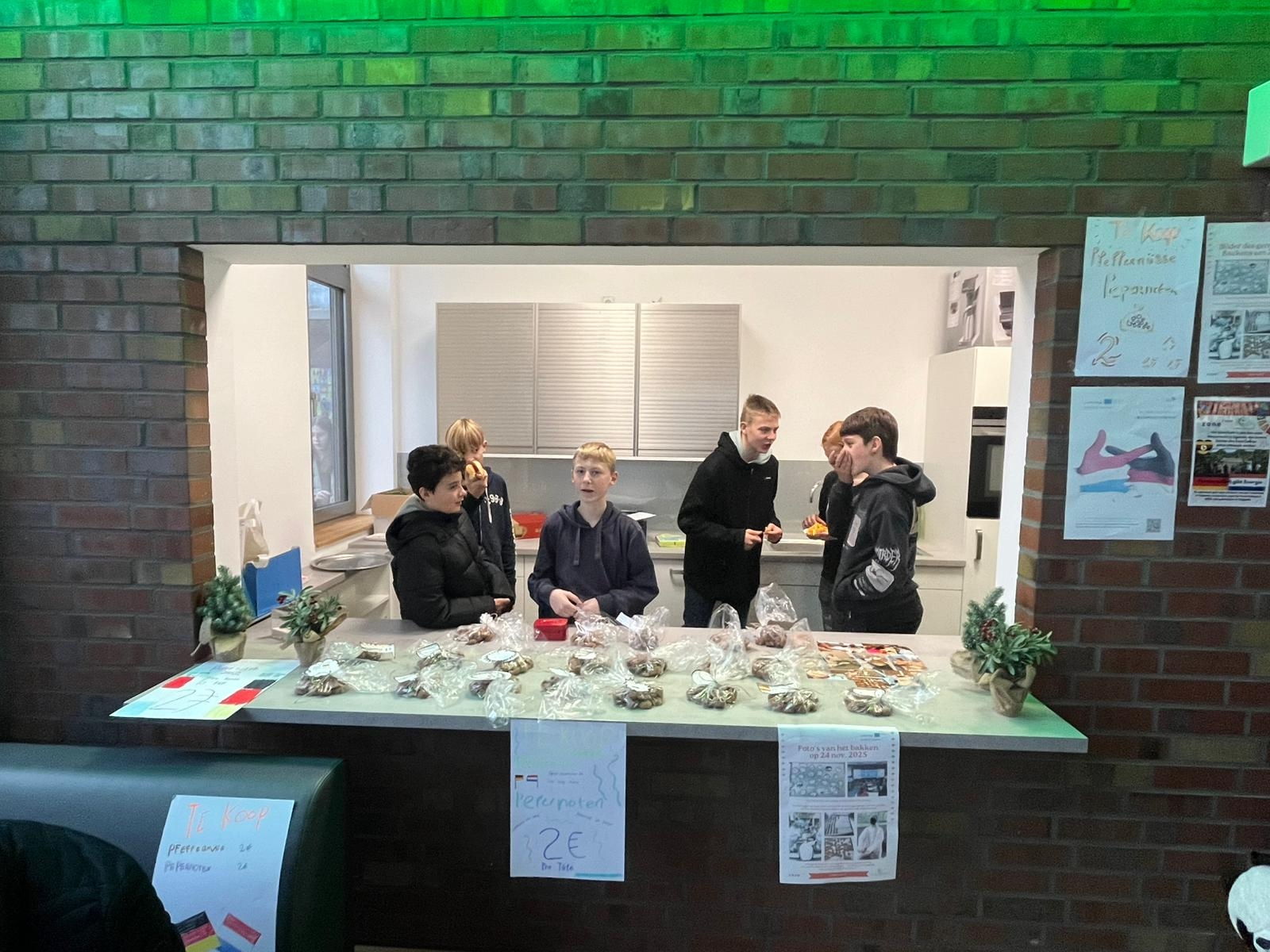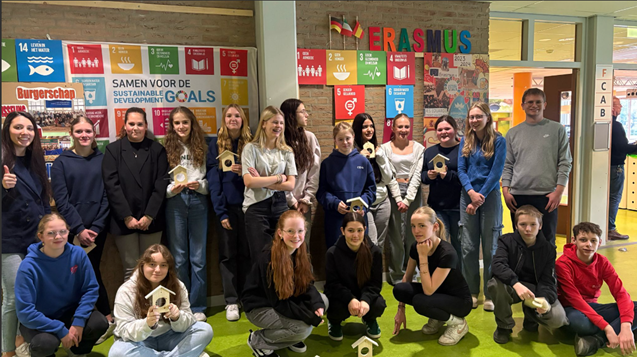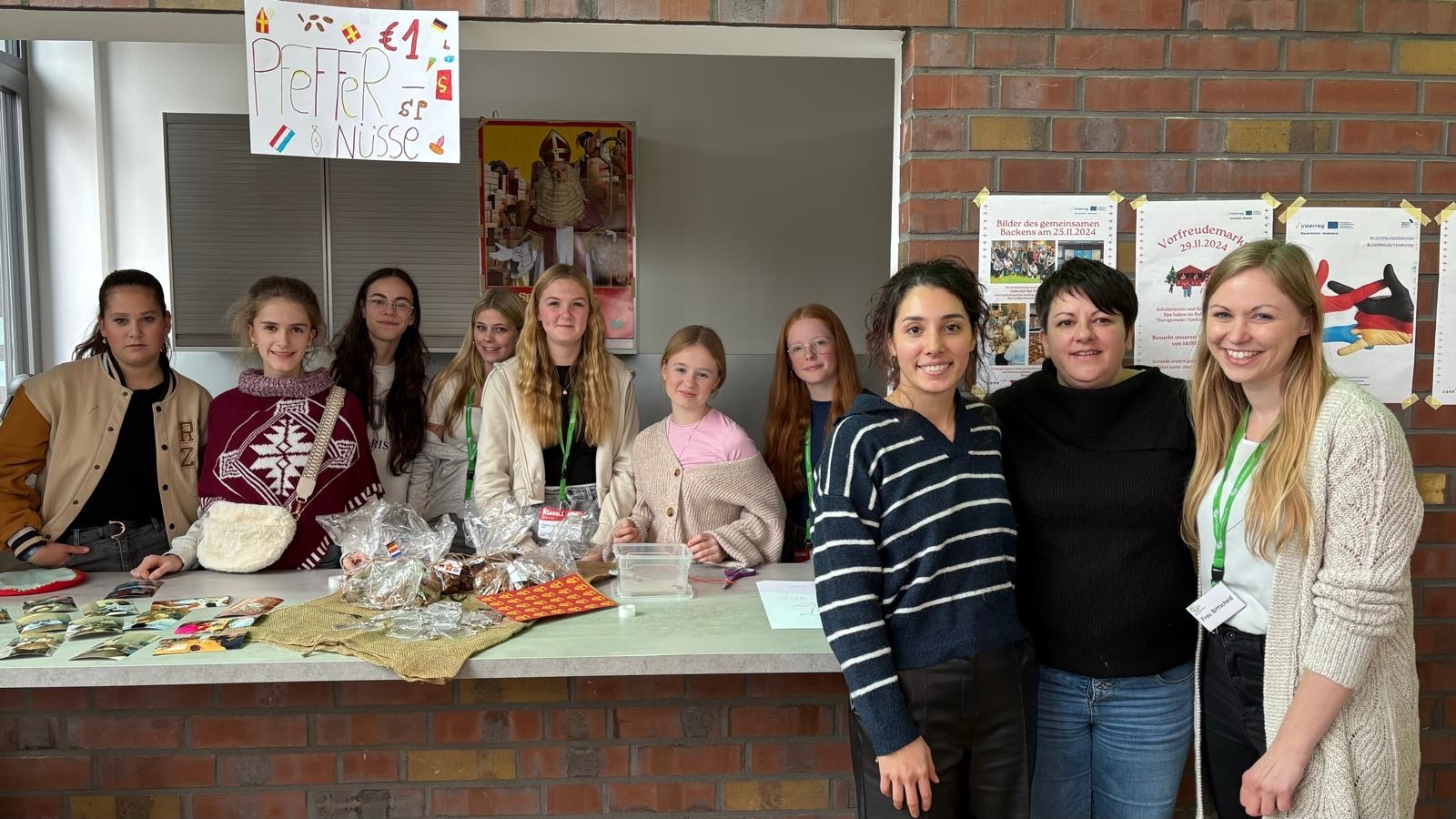The EUREGIO is a cross-border association of 129 German and Dutch cities, municipalities, districts and water boards. The area of the EUREGIO covers about 13,000 square kilometers and is home to about 3.4 million inhabitants. On the Dutch side, the area includes Twente and Achterhoek as well as parts of northeastern Overijssel and southeastern Drenthe; on the German side, it includes Münsterland, the county of Grafschaft Bentheim, the city and county of Osnabrück, and parts of southern Emsland.
Since its foundation in 1958, the EUREGIO has been working to build and consolidate cross-border structures. The aim is to promote both the socio-cultural cooperation and the socio-economic development of the region.
Activities to date
Since the beginning of the school year 2016/2017, the Euregio Comprehensive School has intensified its efforts to further develop and internationalize its school program. For this purpose, two teachers, in close exchange with the school management, deal with the establishment of contacts with foreign partners as well as the realization of European projects. So far, a number of training courses and seminars of the Pedagogical Exchange Service (PAD) and the Institute for European Partnerships (IPZ) have been attended, especially on the topic of Erasmus+ and eTwinning. In addition, with the AOC-Oost in Enschede (NL), a partner could already be won with whom a first European project could be carried out for Europe Day (May 9, 2017). In the context of this, the Euregio Comprehensive School also took part in a German-Dutch writing competition, which was launched by the Westfälische Nachrichten and Tubantia Enschede.
Furthermore, the Euregio Gesaamtschule is in contact with the TalentStad in Zolle (NL) as well as the Montessori College in Hengelo (NL), with which talks are currently being held about a strategic partnership.
For the elaboration of a European development plan and the application for an Erasmus+ mobility project funded by the EU, the school development group "Europe" was founded at the beginning of 2017, which currently comprises four members.
European Development Plan
As an interculturally strong school, we want to align our school program in many ways to the needs of our student body. Therefore, we want to focus more on the English and Dutch language by establishing bilingual GL courses. This means a further development of our school program as well as a restructuring of the organization of teaching, the qualification of our entire teaching staff and the redistribution of resources. With each school year, the number of bilingual courses is to be increased. Through European training measures, the basics and teaching methods of bilingual teaching will be developed and deepened.
The long-term goal is to be recognized as a European school.



